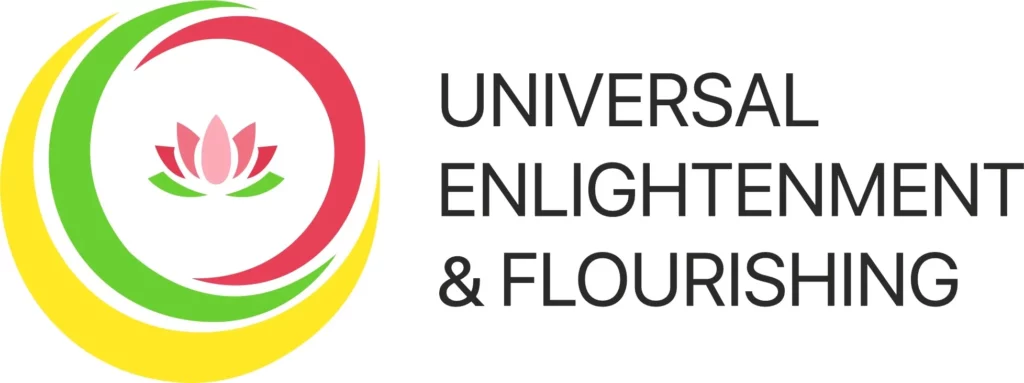Reading Poetry Across the Traditions: Learning to Hear and See the Light

Prof. Francis X Clooney, Harvard Divinity School
Photo source: Harvard Divinity School faculty webpage
In our day and age, we know that we need to work at mutual religious understanding. For that, we need to listen to one another. If so, then amid our many ways of learning from one another, we ought not neglect poetry, both read and recited. Today we have easy access to an abundance of poetries from across religions, which speak to that which is universal with regard to the human experience.
Poetry is all about — and from — language, yet it also appeals to intuitions that cannot be caught in words. Poetry speaks with a verbal intimacy that elusively arises from deep experience that may well be informed by doctrine and ritual practices: but the externals are never the main thing.
In poetry, we find words written that are meant also to be heard; intimate self-expression; spare, disciplined use of language; a heavy reliance on natural images, so clear and so uncertain; experimentation with meters, rhymes, lines.
To show you what I mean, here are six poems we can start with, each rich in the imagery of light. Each is laden with intimations of traditional learning, but can also be read simply by patiently hearing and seeing the poetic imagery, then letting the lights and radiances of the poems enlighten one another. Let there be light: see the light. I give them in an approximate chronological order, naming the author and, if a translation, the translator’s name.
In 1923 Caroline Miles Hill published the first edition of The World’s Great Religious Poetry. MacMillan, a global publisher with branches in the UK, the USA and Canada, Australia, and both Bombay and Calcutta, brought this mammoth volume over 800 pages in length. It ambitiously sought to move beyond the Bible and Christian West, to discover the poetries of other religious cultures as well. Most of the poetry is still that of the West, but Hill tries to broaden the volume by including Tagore and Kabir (in Tagore’s translation), poems with Buddhist themes, the Greek Stoic Cleanthes’ hymn to Zeus, and “O Thou Eternal One” by Derzhavin, one of the most famous Russian poets of the 18th century. Conceding the great preponderance of poetry from the West, Hill softened the imbalance by seeking out poems that attest to universal values, the One, the depth of experience, the presence of God in nature. The volume is quite culturally and religiously limited, by our standards, but it was prophetic in beginning to provide readers with poetries that cross cultural and religious boundaries.
Today we have a much greater abundance of poetries from across religions: Robert Alter’s fresh translations of the Bible’s Hebrew poetry, for example the Psalms and the Song of Songs; the Quran not merely as poetry, but beautifully rendered in the still-new Study Qur’an; Chinese poetry, as in David Hinton’s Classical Chinese Poetry; the Alvars, the Tamil Vaisnava saints, as translated by Archana Venkatesan and others (including myself); a collection of Japanese poetry collected and translated by TE McAuley; substantial volumes of African traditional poetry and Native American poetry edited respectively by Ulli Beier and by Duane Niatum. The still-young Murty Classical Library of India includes lovely translations of Tulsidas; Surdas; Urdu Ghazals, Sufi lyrics, and poems from the Therigatha of the ancient Buddhist nuns — and on and on. Christian sources too are ever updated in new translations, and in new editions of poets from John Donne and George Herbert to Gerard Manley Hopkins and 20th century religiously inspired poets.
Psalm 139:7-12
Where can I go from your spirit?
Or where can I flee from your presence?
If I ascend to heaven, you are there;
if I make my bed in Sheol, you are there.
If I take the wings of the morning
and settle at the farthest limits of the sea,
even there your hand shall lead me,
and your right hand shall hold me fast.
If I say, “Surely the darkness shall cover me,
and night wraps itself around me,”[a]
even the darkness is not dark to you;
the night is as bright as the day,
for darkness is as light to you. (New Revised Standard Version)
Verses from the Tamil Vaisnava poetry of Bhut Alvar and Tirumalicai Piran
In the day, I have seen, I have seen Narayana, yet too
In dream I have seen his body clearly – I have clearly seen him.
His discus illumines his body, his lustrous feet are very radiant
His form of light shines in the heavens. (Bhut Alvar, The Second Set of Holy Linked Verses 81, translated by FX Clooney)
You alone are the whole world — that it exists is by your grace.
You alone are the God of those who become gods by their penances,
You alone are fire’s light, the mountain ranges,
The eight directions, the twin lights in the sky: all of it is you. (Tirumalisai Piran, The 96 Linked Verses 20, translated by FX Clooney)
Jalal-ud-Din Rumi, “The Lamps Are Different, But The Light Is The Same
The lamps are different,
But the Light is the same.
So many garish lamps in the dying brain’s lamp-show,
Forget about them.
Concentrate on the essence, concentrate on the Light.
In lucid bliss, calmly smoking off its own holy fire,
The Light streams towards you from all things,
All people, all possible permutations of good, evil, thought, passion.
The lamps are different,
but the Light is the same.
One matter, one energy, one Light, one Light-mind,
Endlessly emanating all things.
One turning and burning diamond,
One, one, one.
Ground yourself, strip yourself down,
To blind loving silence.
Stay there, until you see
You are gazing at the Light
With its own ageless eyes. – (Translated by Andrew Harvey)
God’s Grandeur, by Gerard Manley Hopkins
The world is charged with the grandeur of God.
It will flame out, like shining from shook foil;
It gathers to a greatness, like the ooze of oil
Crushed. Why do men then now not reck his rod?
Generations have trod, have trod, have trod;
And all is seared with trade; bleared, smeared with toil;
And wears man’s smudge and shares man’s smell: the soil
Is bare now, nor can foot feel, being shod.
And for all this, nature is never spent;
There lives the dearest freshness deep down things;
And though the last lights off the black West went
Oh, morning, at the brown brink eastward, springs —
Because the Holy Ghost over the ben
World broods with warm breast and with ah! bright wings.
Gitanjali 27, by Rabindranath Tagore
Light, oh where is the light? Kindle it with the burning fire of desire!
There is the lamp but never a flicker of a flame—is such thy fate, my heart? Ah, death were better by far for thee!
Misery knocks at thy door, and her message is that thy lord is wakeful, and he calls thee to the love-tryst through the darkness of night.
The sky is overcast with clouds and the rain is ceaseless. I know not what this is that stirs in me—I know not its meaning.
A moment’s flash of lightning drags down a deeper gloom on my sight, and my heart gropes for the path to where the music of the night calls me.
Light, oh where is the light! Kindle it with the burning fire of desire! It thunders and the wind rushes screaming through the void. The night is black as a black stone. Let not the hours pass by in the dark. Kindle the lamp of love with thy life.
We can ponder in closing the words Caroline Miles Hill offers at the end of her preface to The World’s Great Religious Poetry:
A common language might be a great step to knowledge of spiritual things. The oriental religions, Christianity and the modern cults all use different terms, but seek the same realities. There was a prophet-poet who lived in Galilee who said, “I am the Way.” The path He took, with all the greatest saints of all religions is the only path we know to the Other World. His language regarding the eternal verities has been the greatest unifying force ever projected into the world of human relations. The language of poetry is universal and may lead to the outer gate.
Francis X. Clooney, SJ
Harvard University


